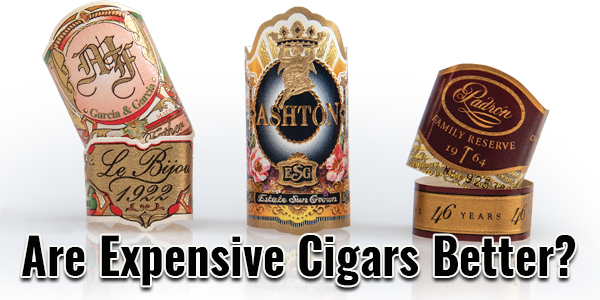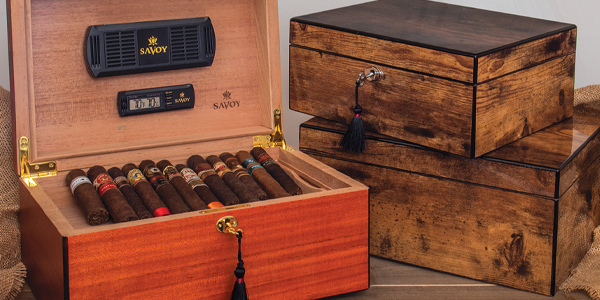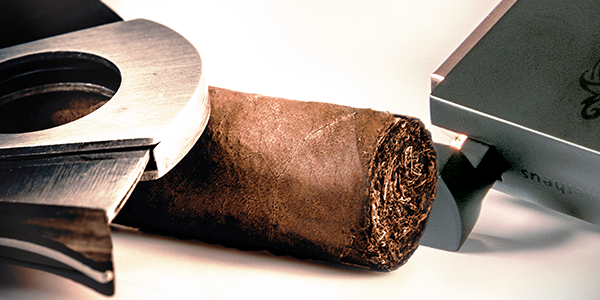Top 15 Secrets Every Cigar Smoker Should Know
I’ve written hundreds of articles about cigars. It would take days to read them all. But, I know you’re way too busy for that, and many of you, who are new to cigar smoking, need some quick advice on how to smoke a cigar because you don’t want to look like a novice if you’re lighting up with your boss or your future father-in-law. That’s why I’ve summed up the top 15 secrets every cigar smoker should know. Smoke like a pro right now.
1. Don’t Inhale Cigars
The number one rule for all cigar smokers is that you don’t inhale. When you smoke a cigar, draw the smoke into your mouth, allow it to engage with your palate for a bit, and expel it. You can even push some of it out through your nose. Never inhale cigar smoke into your diaphragm.
2. Cuban Cigars Are Not the Best
Many people assume Cuban cigars are the best because they’re “forbidden.” Cuban cigars have been illegal in the U.S. since our trade embargo with Cuba took effect in 1961. You’re likely to find both real and counterfeit Cubans if you hunt around, but they’re not the best. Today’s best premium cigars are handmade in the Dominican Republic and Nicaragua where there are far higher quality control measures in place. Most of today’s great cigar-making families hail from Cuba, but they fled the country years ago so they could continue making cigars and selling them (legally) in America, where more cigars are consumed than in any other nation in the world.
3. Smoke On a Full Stomach
Another big mistake rookies make is smoking on an empty stomach. If you don’t have time for a steak dinner, at least eat a snack. You’re less likely to get nauseous smoking a cigar when you have some food in your stomach.
4. Darker Cigars Aren’t Always Stronger
Sure, dark and oily cigars entice and even intimidate us, but they’re not always the strongest. There are plenty of milder Maduros to smoke that leave a creamy, mellow impression. A cigar’s strength depends on the actual wrapper varietal and the binder and filler tobaccos inside. A light-colored cigar that’s loaded with Ligero tobaccos on the inside will throw you for a curve if you’re anticipating easygoing taste.
5. Cigar Size Makes a Difference
Choose the right size to smoke based on how much time you have and how much cigar you can handle. Smoke a Churchill when you’ve got all day, but go for a Corona when you’ve only got thirty minutes. Longer cigars deliver a stronger finish because there’s more tobacco, but shorter cigars intensify faster because the heat is closer to your palate when you light up. Fatter cigars burn cooler and slower than thinner ones, which reflect a more flavor (and strength) from the wrapper leaf.
6. Expensive Cigars Aren’t Always Better
There are plenty of $5 to $6 cigars that are just as good as $20 cigars. Price isn’t an indication quality. More expensive cigars are rarer in some cases. In others, price is simply part of the packaging and marketing plan. And, cheap cigars aren’t always bad. You don’t have to be a bargain hunter to appreciate a good bundle. If you’re getting cigars for your boss or a special occasion, for example, pay attention to the tasting notes, the region where the cigars made, the strength, and the size. Price is only one part of the equation.
7. No Humidor? No Problem.
Get a Boveda Humidor Bag. They’re inexpensive and keep your cigars fresh for up to a year, and you can replenish the Boveda humidity pack on the inside to make them last even longer. Don’t, however, store your cigars in the refrigerator. Refrigeration dries them out.
8. You Can Age Cigars Like Wine
Cigars stay fresh indefinitely as long as you keep them humidified. Store your cigars at 70% humidity and 70 degrees Fahrenheit, and you can age them for years. A cigar’s taste will change as it ages. It often mellows out, but not always.
9. How You Cut Your Cigar Matters
How you cut your cigar makes a difference. A straight cutter is the most common and will give you a bigger draw, but a punch or a V-cutter increase a cigar’s intensity because they’re more concentrated.
10. Butane Lighters or Matches Are Best
Because it takes a moment to fire up a cigar, light your cigars from a clean flame. Cigar lovers only fill their lighters with triple-refined butane, which has few impurities. Cedar matches work great, too, when you’re inside. Avoid Zippo lighters. They take liquid fuel, which taints the taste of a good cigar.
11. Don’t Dip Your Cigar
Dipping your cigar in whiskey isn’t necessary to make it taste better. When you saturate the head of your cigar in any beverage, you’re compromising the draw because it’s likely to get plugged. Sip on your whiskey while you’re smoking to marry the flavor.
12. Never Grind Your Cigar Out
Getting to the end of a good cigar is always sad, but don’t make the moment worse by grinding the nub out in the ashtray. Because cigars are made from humidified tobacco, they naturally burn out. Set your cigar in an ashtray and wait a moment for it to expire. Smooshing a cigar butt only makes a mess leads to a stale scent.
13. You Can Fix a Cracked Wrapper
Before you throw your cigar out because there’s a tear in the wrapper leaf, read our advice for how to fix a cracked wrapper with pectin.
14. Plume Is Not Mold
Ever spot tiny white specks on a cigar? That stuff is plume, not mold, which is blue or green in color. You can gently brush plume off a premium cigar, but mold is sticky and won’t come off. Mold also invades the foot of a cigar, whereas plume only forms on the surface of the wrapper leaf. Plume is a sign your cigar has been properly aged.
15. Never Store Flavored & Non-Flavored Cigars Together
One flavored cigar can ruin an entire humidor. Because cigars are like sponges, they absorb whatever is around them. If you store a chocolate or vanilla-flavored cigar with a bunch of non-flavored cigars, they will all eventually taste like flavored cigars.






